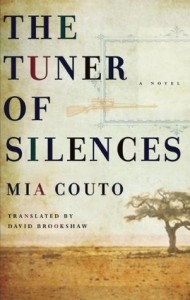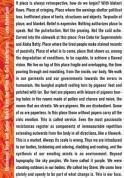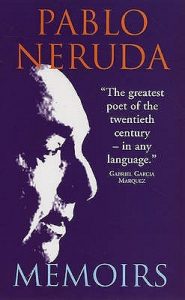I’m not very good at asking for help. Most of the time that’s okay because writing is such a solitary activity, but there are times when I reach a writing plateau that reading 1,000 books won’t budge me from. At those times, the best thing I can do for myself is take a writing class.
I was stuck this year. More stuck than I had been in a long time. I was working on a book I started just after grad school (three years and counting) that never went anywhere. It got longer but not more defined. The theme shifted as I grew, but the writing wasn’t looking more like a book. I needed help.
Reaching Out to a Writing Community
The safest place to turn for writing help (before I get up the gumption to take a class) is another writer. I spent a wonderful October afternoon with Liza Wolff-Francis in Austin, TX talking about writing and, more importantly, about not writing. We visited independent bookstores and confessed our difficulties. It felt amazing to share the problems I was having with someone who knew exactly what I felt like.
ModPo from Coursera and the University of Pennsylvania
Liza also told me about a modern poetry class she was taking online, ModPo from the Kelly Writers House at the University of Pennsylvania. It’s a MOOC (Massive Open Online Course) which means that the barrier to entry was low–I didn’t have to know how good of a student I’d be before I signed up–and that it was okay I was starting the class a month late.
The class was wonderful and I couldn’t get enough. I read poets and poems I knew and ones I’d never heard of. I was inspired to re-examine books I’d read and dismissed as I watched videos of the class TAs discussing the poems and learned about the many ways to read a poem. Through the weeks, I started to feel like I was at that table with new friends discussing poems I liked and others I didn’t but came to understand. There were tens of thousands of students from around the world but the experience was so intimate that I felt like I was part of a writing group that met whenever I had time and would pause for me when I needed to make coffee or breakfast. I did not write the papers in the class and I’m actually still working through the poems in week 8, but I’m so thankful that this resource was available.
I’m grateful to professor Al Filreis, to the TAs, and to Liza. I’m still not working on the new book as much as I’d like, but that’s not because I’m adrift without knowing how to get to shore, it’s because I’ve been blessed to have two books slated for publication next year. I am inspired and I can’t wait to work on distilling the language and ideas for that new book.
ModPo doesn’t start again until September of next year, but if you are curious, it’s worth waiting for. Set yourself a calendar reminder to check this link around that time and sign up.
Sharing Inspiration with Others
Cheers to you, dear readers, because sharing books with you is a constant source of inspiration. The conversations we have in the comments help me think more deeply about the books and knowing that you’re out there keeps me honest about posting regularly. I know my timing has been a bit off over the holidays. As soon as I get these book edits done, I’ll be back on track. Thank you for reading. You are a very important part of my writing community.
If you are feeling full of writing goodness and want to pay it forward, I’d encourage you to support your favorite writing groups with your year-end giving. Two of my favorites are Richard Hugo House (where I’m a board member) and the Kelly Writers House (home of ModPo). Of course it’s the people who make these places alive, but cash helps keep the lights on. You could also bake some cookies for your favorite writing buddy or the person who makes you dinner while you write, or buy a brand new book (preferably from an independent bookstore) to support publishing in general.
I’ll be back in the new year to share with you the books I’m reading. Until then, I wish you a very happy new year full of writing, reading, and inspiration. Much love!
 I wrote recently about a
I wrote recently about a  When I requested a review copy of Occasional Work and Seven Walks from the Office for Soft Architecture by Lisa Robertson, I was working as the managing editor of an architecture magazine while earning my MFA. The irony of my experience was how many architects used convoluted and turgid language to describe designs that were pared down to their purely minimal essences. The days I spent sorting through jargon like “fenestration” and “tectonics” were great training for nights spent finding the clearest way to communicate an idea in my own writing.
When I requested a review copy of Occasional Work and Seven Walks from the Office for Soft Architecture by Lisa Robertson, I was working as the managing editor of an architecture magazine while earning my MFA. The irony of my experience was how many architects used convoluted and turgid language to describe designs that were pared down to their purely minimal essences. The days I spent sorting through jargon like “fenestration” and “tectonics” were great training for nights spent finding the clearest way to communicate an idea in my own writing. In Divisadero, Michael Ondaatje uses an odd narrative point of view. Though Ondaatje shifts between passages in the first person points of view of Anna and of Lucien Segura and also third person omniscience, the novel can be read as a compilation of Anna’s reminiscences, extrapolations, and imagination.
In Divisadero, Michael Ondaatje uses an odd narrative point of view. Though Ondaatje shifts between passages in the first person points of view of Anna and of Lucien Segura and also third person omniscience, the novel can be read as a compilation of Anna’s reminiscences, extrapolations, and imagination. Pablo Neruda had a fascinating life and met all sorts of interesting people from Che Guevara to Federico García Lorca. But in reading his Memoirs, I felt like he was recounting all of these stories to me as opposed to letting me relive them with him. Although Neruda uses some dialogue, he rarely ventures into full-blown scene. The closest he gets are little vignettes like:
Pablo Neruda had a fascinating life and met all sorts of interesting people from Che Guevara to Federico García Lorca. But in reading his Memoirs, I felt like he was recounting all of these stories to me as opposed to letting me relive them with him. Although Neruda uses some dialogue, he rarely ventures into full-blown scene. The closest he gets are little vignettes like: